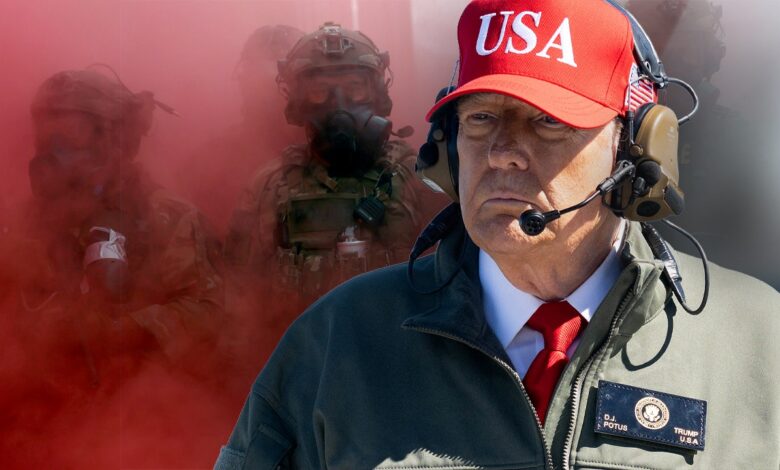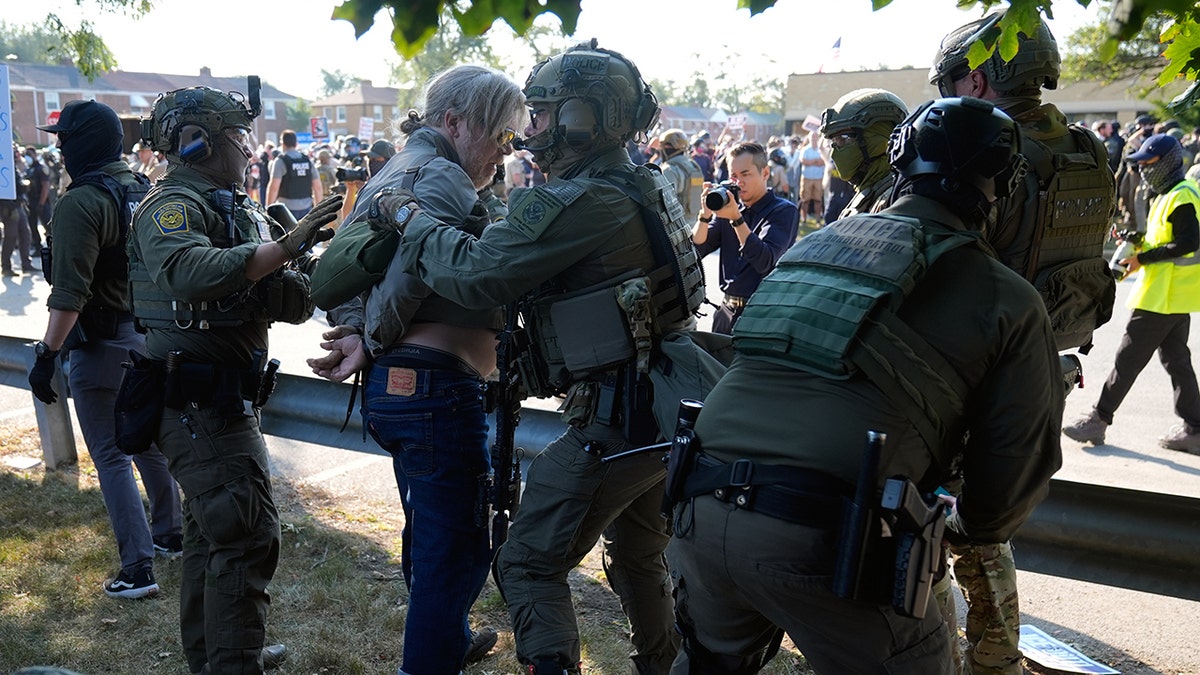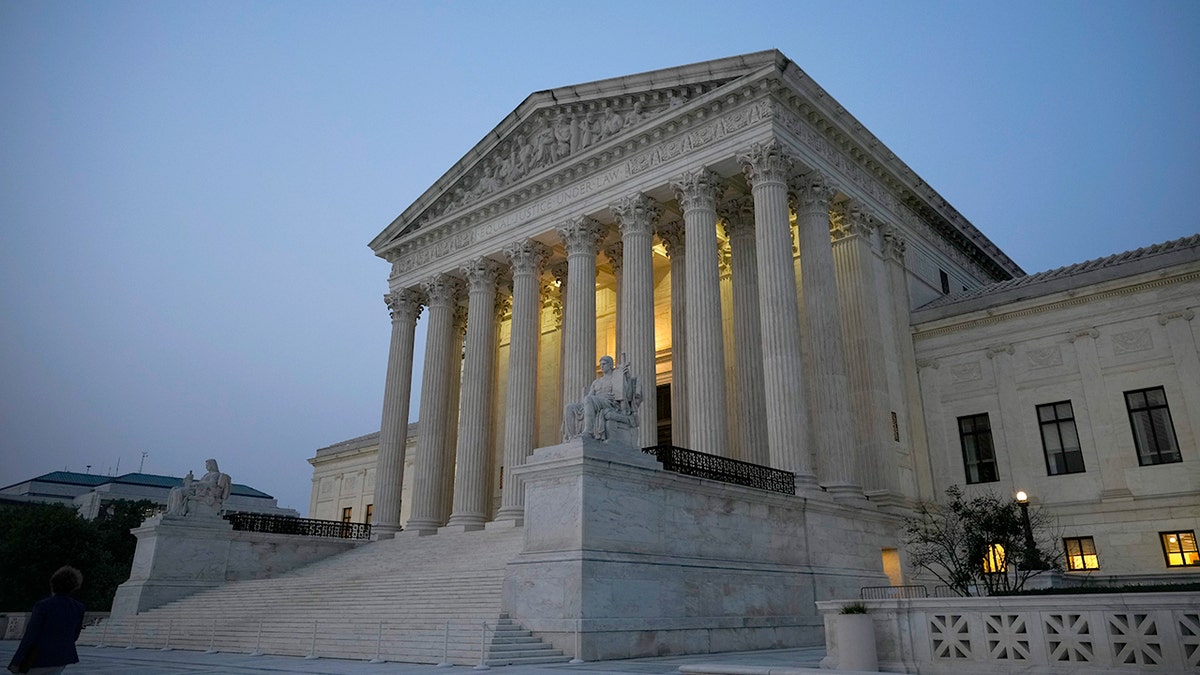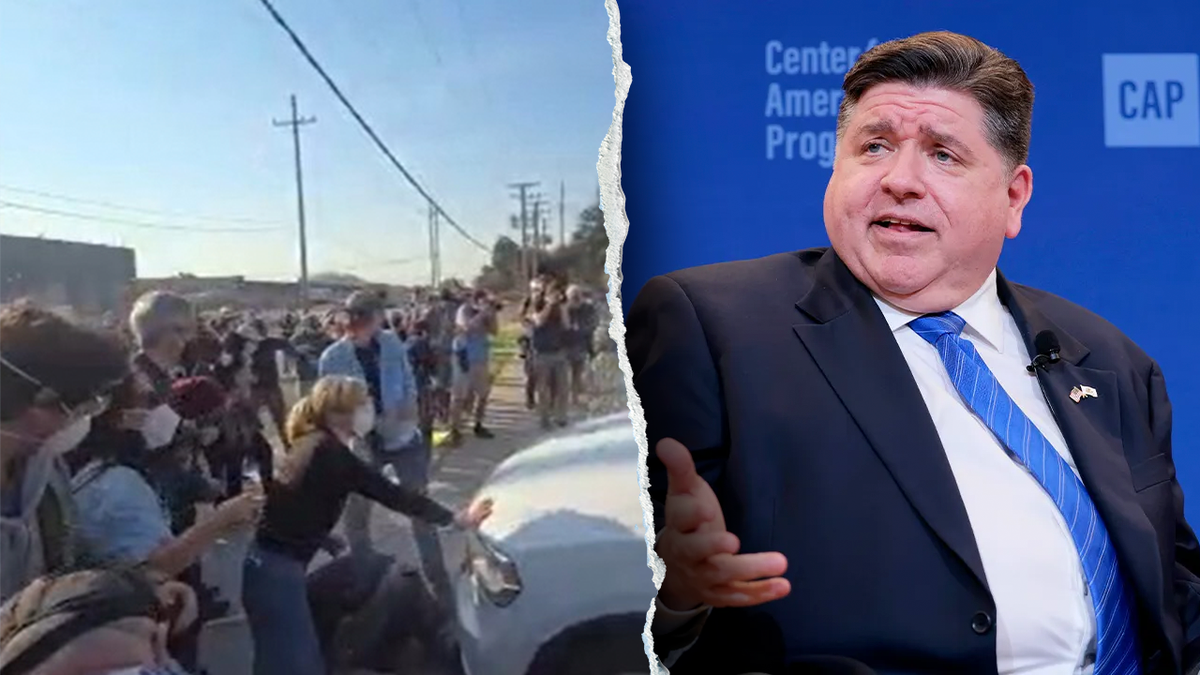Trump National Guard use in Oregon and Illinois faces legal tests

NEWYou can now listen to Fox News articles!
President Donald Trump’s use of the National Guard in Oregon and Illinois faced a double test in the courts this week, as his administration argued that the two Democratic-led states obstructed enforcement of federal immigration laws.
Relying on a host of constitutional provisions and judicial precedent, government lawyers sought to justify the deployment of the National Guard to Portland and Chicago. Some legal experts say the president has the law on his side, while others fear Trump threatens state sovereignty.
Democratic leaders have reacted with outrage to Trump’s attempts to send federal troops into their jurisdictions. Chicago Mayor Brandon Johnson has established “Ice Free Zones” throughout Chicago to prevent federal agents from using city-owned property in their ongoing operations. Conservative critics have compared this action and similar opposition from Democratic leaders to the Trump administration to attempts to overturn federal law, dating back to the 19th century.
“Abraham Lincoln of Illinois had some ideas on how to handle this John C. Calhoun-style ‘nullification,'” conservative lawyer and commentator Josh Hammer wrote on X.
PRITZKER SUES TRUMP TO BLOCK NATIONAL GUARD ACTION IN ILLINOIS

Law enforcement officers arrest a protester near an Immigration and Customs Enforcement facility in Broadview, Illinois on October 3, 2025. (AP/Erin Hooley)
Joshua Blackman, a professor at the South Texas College of Law, said the federal government does not need states’ permission to defend federal facilities. The Trump administration’s position is that it must deploy the National Guard to protect federal personnel and Immigration and Customs Enforcement buildings.
“It’s a principle that goes back to the beginning of the Republic,” Blackman told Fox News Digital, referring to the landmark case McCulloch v. Maryland, which concluded that Maryland could not tax a national bank created by Congress.
The high court said in that case that allowing a state to impose such a burden on a federal institution would violate the Constitution’s supremacy clause, which says federal law trumps state law.
The need for the National Guard
During a series of oral arguments this week before the U.S. Court of Appeals for the 9th Circuit, a Trump administration lawyer argued that the unrest in Portland, sparked by ICE activity, warranted the deployment of about 200 National Guard troops.
“For months, ICE’s Portland facility and the federal law enforcement agents who work there have faced a constant stream of violence, threats of violence, and harassment from violent agitators determined to obstruct the enforcement of federal immigration laws,” said Eric McArthur, defending the Justice Department.
The rebellion statute that Trump is using to federalize the National Guard, over which governors share authority, can be invoked in such situations, McArthur argued.
He also said the government’s position was that the courts had no say in Trump’s assessment of the need for the military. Blackman made a similar point.
“The statute allows the president to judge necessity. It’s not clear to me that a court could question it,” Blackman said.
States ‘frustrate’ immigration enforcement
In court documents, the Trump administration also cited an 1890 case, Neagle v. Cunningham, who established that the president has the authority under the Constitution’s Prudence Clause to “take care” that federal laws are enforced, including doing what is necessary to protect those who enforce immigration laws.
In Neagle, a U.S. marshal shot and killed a person who attacked a Supreme Court justice, and the Supreme Court ruled that the state of California could not prosecute the marshal for murder because he was protecting a federal officer.
FEDERAL JUDGE BLOCKS TRUMP’S NATIONAL GUARD DEPLOYMENT TO PORTLAND AMID CONSTITUTIONAL CHALLENGE

The facade of the Supreme Court (Drew Angerer/Getty Images)
Blackman said states have been “frustrating” federal immigration controls for years and these lawsuits filed by blue states trying to challenge the National Guard’s presence were an example of that.
He said state resistance had not “quite reached the level of nullification,” as when Southern states tried to block the integration of segregated schools, but was “within the range.” If states were to defy court orders, it could make the situation worse, Blackman said.
The suits, which could go to the Supreme Court, especially if circuit courts rule against Trump in the coming days, could help narrow the line between state and federal law enforcement authority.
The police are “state responsibilities”
As with Oregon and Illinois, Matt Cavedon, director of the CATO Institute, said the 10th Amendment also comes into play in these cases and implies that the Trump administration generally cannot assume a state’s law enforcement responsibilities.
Cavedon also said it was unusual, in his view, for a Republican government to take a more expansive view of federal power.

The Department of Homeland Security is criticizing Illinois Democratic Gov. JB Pritzker (R) for not being proactive in his response to a chaotic anti-ICE protest in Broadview, Illinois, last week. (Anna Moneymaker/Getty Images and Jon Stegenga via Storyful)
“It’s not generally conservatives who argue that there are just broad, unenumerated federal powers that belong to the president, certainly in the domestic context,” Cavedon told Fox News Digital.
CLICK HERE TO GET THE FOX NEWS APP
Cavedon said the events in both states are “truly critical matters of public safety and security, which are at the heart of a state’s responsibilities.” Leaders in Oregon and Illinois made similar statements that nothing extraordinary was happening in terms of crime to warrant the National Guard’s intervention.
“I think the 10th Amendment answers one question: All powers not vested in the federal government are reserved respectively for the states,” Cavedon added.



